Revox
Studer B225 CD player
August 2008
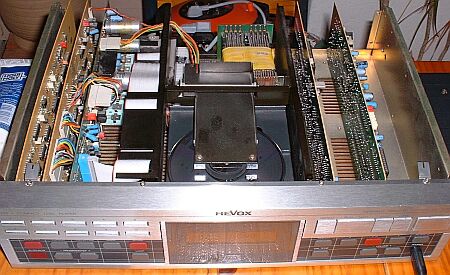 (temporary image from internet)
(temporary image from internet)
In this article
I will try to describe my first encounter with the legendary Revox B225
player.
The roots of
this machine are in the first ever Philips CD player - first generation
of CDM mechanism called later " the ZERO", many people including myself
consider it to be one of the finest mechanisms ever. Something that
definitely is NOT MADE ANYMORE TODAY. It is something you won't find on
the supermarket shelve.
The Revox B225
has also the first generation Philips electronics - the chips are from
the SAA 70xx series - starting from saa7000, 7010, 7020, 7030, etc.
Each chip plays a different role, all aspects of digital signal
processing are done separately - RAM, error correction, interpolation,
digital filtering, oversampling, etc etc. You can download the
datasheet and read more about it.
What sets the
Revox B225 apart from the crowd of tens of other similar machines based
on the same electronics is the first ever use of display. The first
players from Grundig, Philips, Marantz, Loewe, B&O, and other
German companies had only the LED display indicating track number up to
16.
Just like these
two:

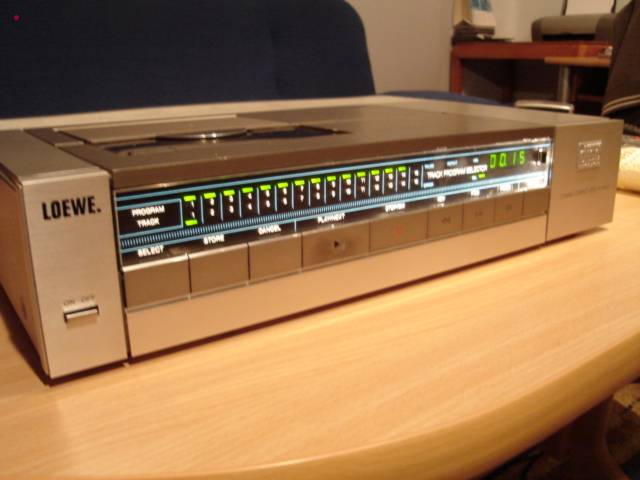 B&O Beogram
CD5500 and Loewe CD9000
B&O Beogram
CD5500 and Loewe CD9000
Revox went
further and provided the fully functional and informative LCD display.
That is the weakest point of all Revox players - the display often
breaks, leaks the cristal liquid, looses digits, etc. In the Revox
B225, B226 and B126 - the LCD was NOT back-lit. So you could not see it
in the dark room, even if there is a lightbulb built in above the
display.
The luxury
version - Revox B226S has a backlit - which is a real disaster.
Probably 90 % of them are dead by now. And they can't be repaired, and
can't be substituted. Some spare light emitting foils exist, but
costing close to 100 Euro if you are lucky.
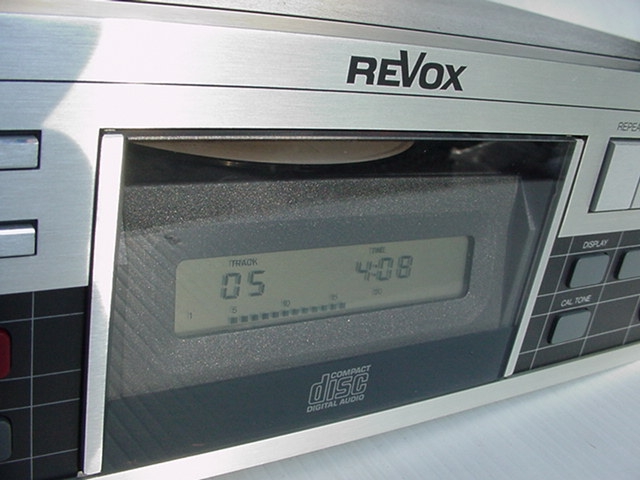
(temporary image from internet)
DAC Chip of the
Revox B225
Anyway, back to
Revox B225 - what is the key information is that te DAC is a 14 bit
type, old grantfather of all DACs - the Philips TDA1540. On paper it is
an enfant terrible, but many people swear they like the sound of this
DAC.
I would not even
consider listening to the "mere 14 bit" machine if I had not tried
before the Philips CD104. Electrically -
Philips CD104 and Revox B225 are the same machine, indistinguishable
from one another. Funny thing is that on ebay the Revox costs easily 10
times the asking price of the Philips CD104.
If you ask me,
if someone wanted the CDM0 and TDA1540 sound, but BETTER build
than Philips - the Loewe CD9000 is a much better
built thing than the Revox B225.
Enough boring
you with description, lets look inside the Revox B225. Having done some
works on 5 players from Revox - The B226, B226S, B126 and E426 - I
ecpected to see a well built machine but nothing prepared me for THIS.
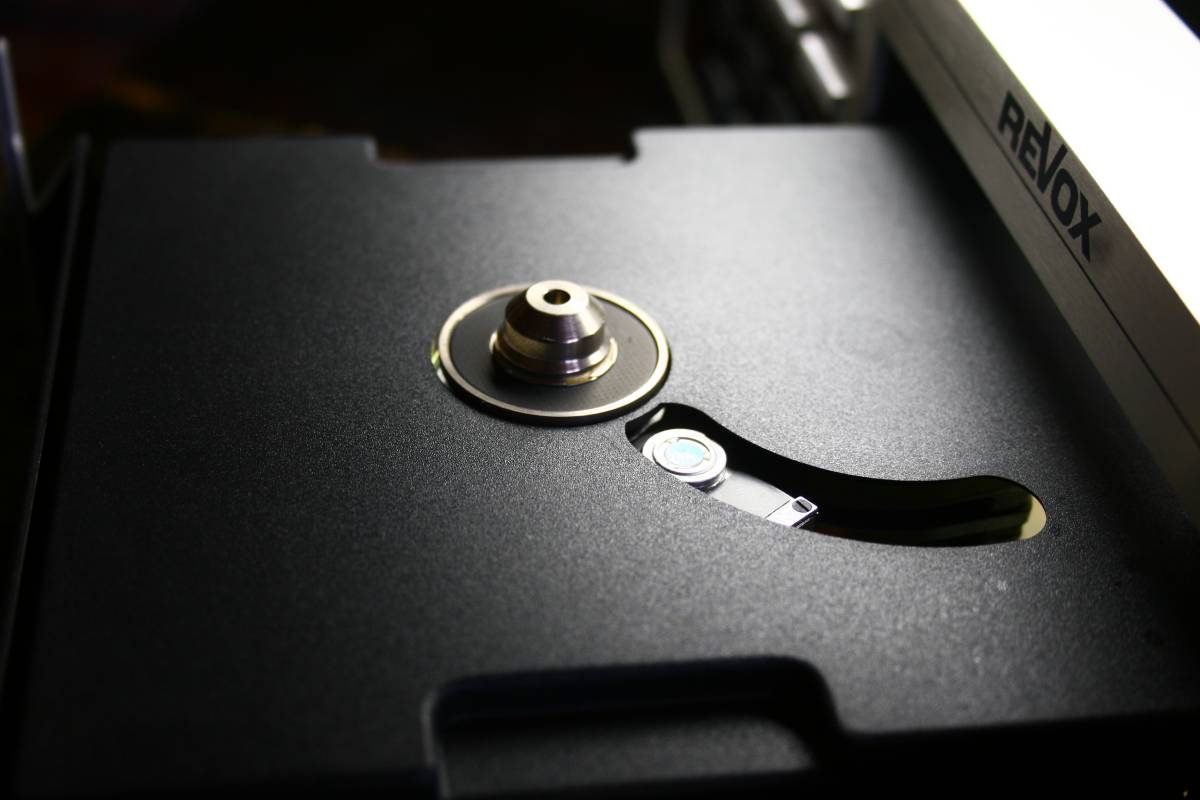
This is the
drawer, which like some other drawers from Sony, Meridian 227, and
Marantz CD73 - contains actually the whole mechanism in it. It is not a
mere tray which takes the disc, but the whole ton of metal mechanism of
Philips CDM Zero comes out of the player. Very impressive. It looks
good, feels good and plays good. God if I could have a SPDIF transport
like that !!! But no - the Revox does not have SP/DIF yet. This format
was not invented because noone needed external DACS back then before
1985. The Philips TDA 1540 was the DAC chip to have and nobody proposed
to build external boxes. I am sure it is possible to extract raw
data from the SAA7000 chip and with a little help from additional
SAA7220 we could produce SP/DIF but I havent tried it.
The big issue
with this tray arrangement is THE MOVING MASS. To move this weight we
need HUGE and torky motor and indeed, we find in the revox a gigantic
mechanism for moving the tray. There are no belts so it lives
longer than the other belt based transports. All is mechanically
coupled like in a tank.
Overall, the
combination of CDM zero, the huge tray, the moving mechanism and
the LCD display makes this a very strong contender to the most
interesting mechanism title.
What else is
to be found inside Revox B225 player?
Well, lots of
stuff. In fact this is the only player I have seen except the insanely
overengineered Accuphases which is completely FILLED with electronics
in its entire 3-6 VOLUME not only on flat 2-d board. The Revox approach
is to put multiple boards vertically and occupy the whole space
available.
Each board is a
one sided traditional hand made PCB with a defined roles like DAC,
Digital, Servo and Power Supply.
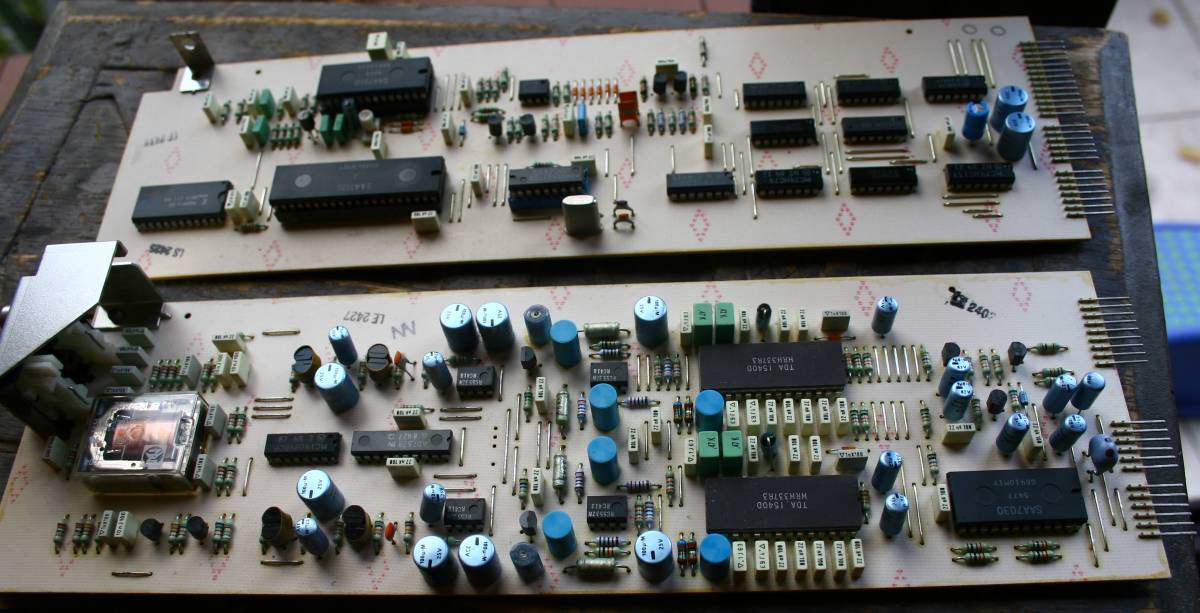
On the photo
above we see two most interesting boards - the Digital - (upper) and
DAC/Output - (lower).
From right to
left on the lower board we see: the SAA7030 digital filter with
oversampling (sort of equivalent of the later SAA7220p/B), then two
mono DAC chips TDA1540, 7 decoupling caps around each dac just like in
the TDA1541 (220 nF in this player).
Then we see two
double opamps per channel, so each signal goes through 4 opamp modules.
Last device is a output muting relay and a pair of output sockets.
Of course Revox
would not be a Revox if things were simple. Nothing is simple.
Normal RCA
cables don't fit here - the top cover prevents usage of any Gucci
cables. Only very slim Mickey Mouse cables fit in these tight holes. I
suggest to DRILL THEM to some 13 mm diameter immediately.
Another thing -
detachable AC cord is non standard so forget about substitutes.
Last but not
least - ONLY oryginal Revox remote will work. Prepare yourself for a 80
Euro price plus shipping.

Reverse side of
the Revox B225 DAC PCB.
What I dont like
about Revox engineering is the fact that the voltage regulators are
VERY FAR away from the consumers. The trace from the regulator to the
actual consumer, say a DAC chip - can run for a meter of various wires,
traces, connectors etc.
Anyway, Revox
B225 is a very welll regulated product ! Just look:
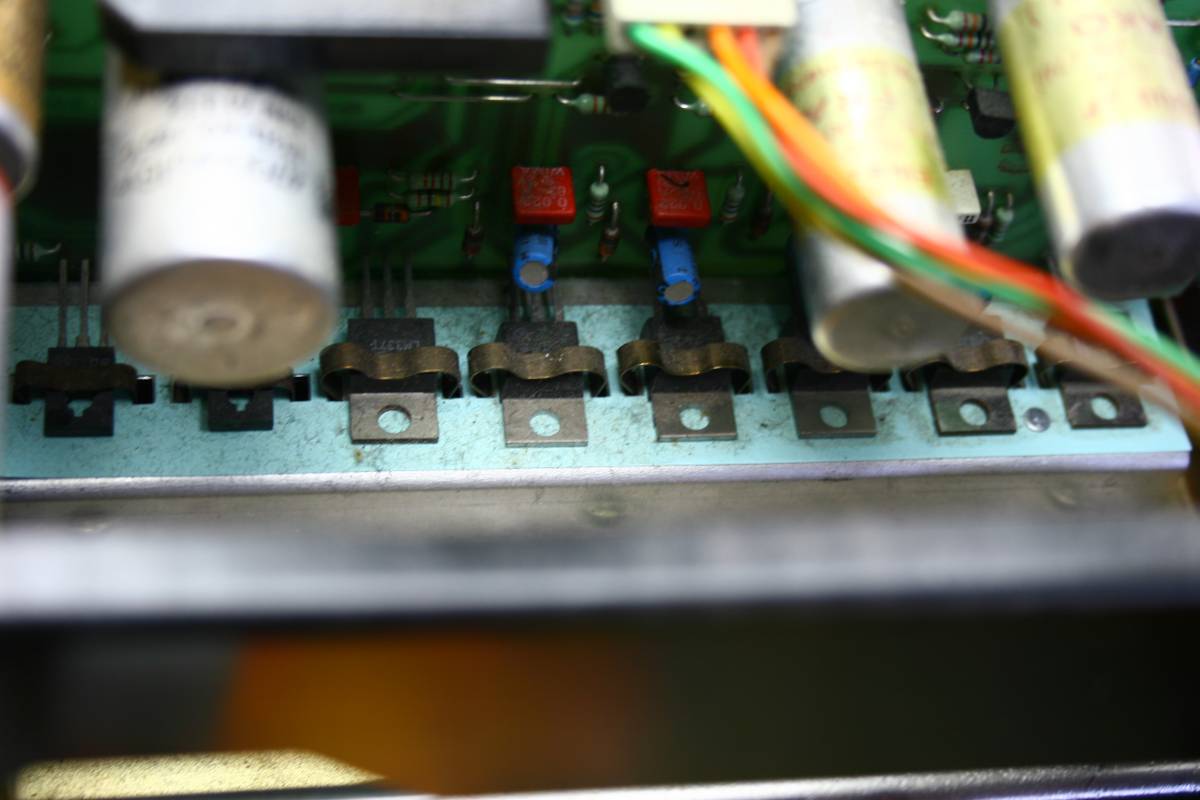
These are 6
regulators of voltage (high end low noise low drop type from
LM3xx series) sitting on common heatsink on the power supply
card. Two chips on the extreme left are unknown, maybe diodes ?
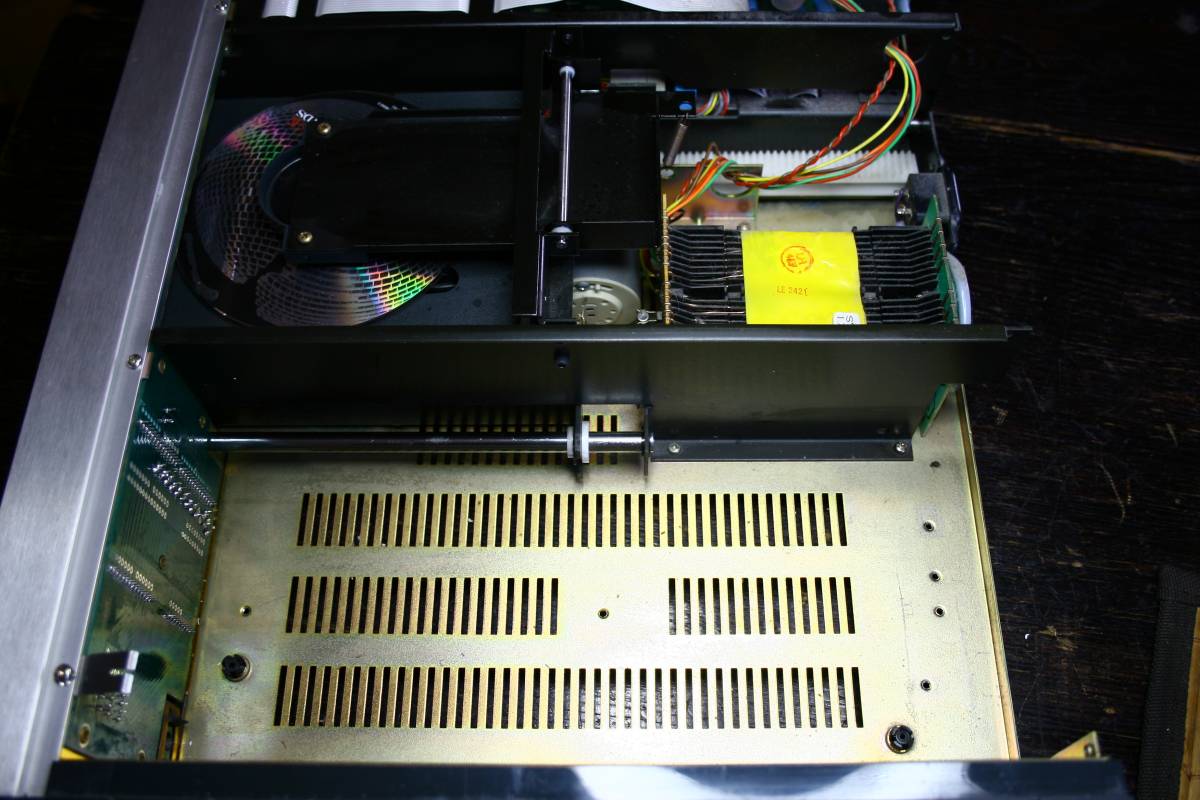
This is the
empty space after removing two cards. You can admire the solid steel
shaft for suspending the moving drawer.
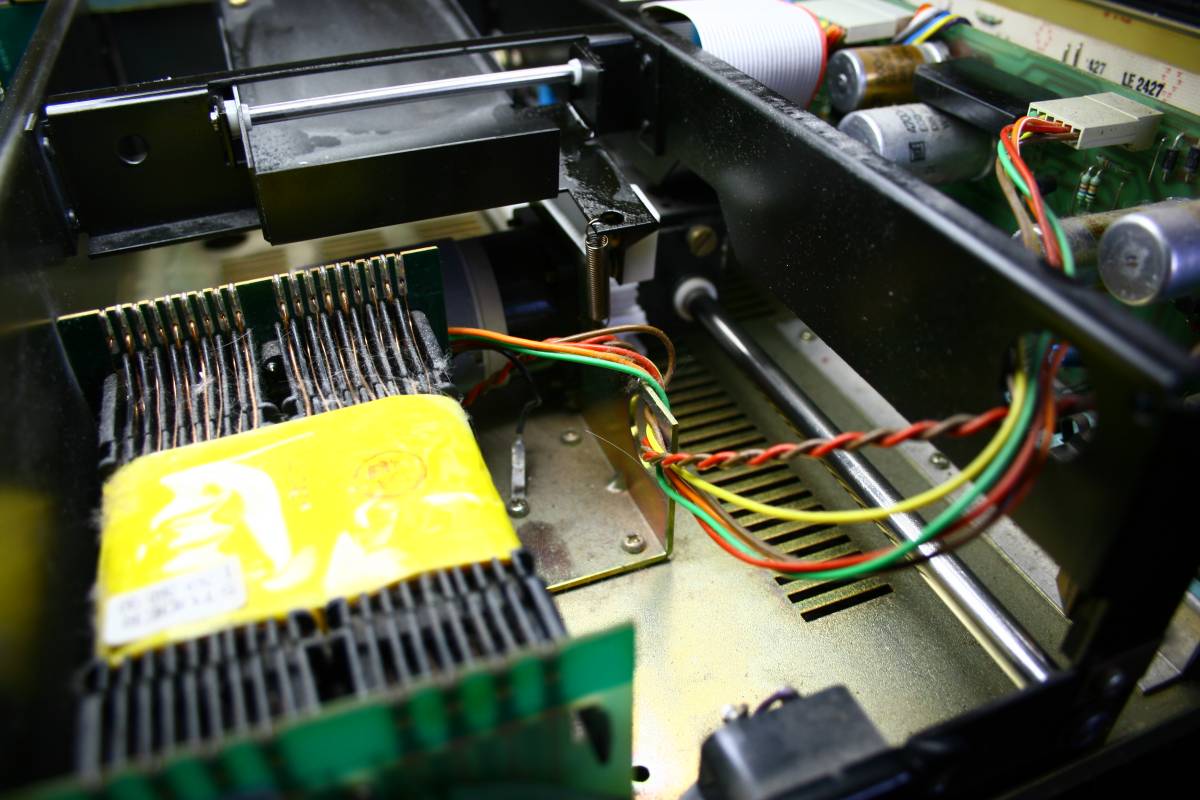
This is the
transformer (EI type) and the back side of the mechanism assembly. The
second steel shaft is visible.
EVERYTHING IN
THIS PLAYER is MADE OF METAL.
Tuning the Revox
B225 CD player.
What could be
improved in this player ? Well, lots of things.
What I suggest
is this program minimum:
1. Clean, dust
and WD40 the mechanism.
2. Enlarge the
RCA openings to accomodate normal cables
3. Replace the
AC input socket with Furutech or Shurter normal 3 pin type. Add a
proper power cord.
4. Check the
green light bulbs in the drawer compartment - probably dead by now.
5. Replace or
add a bypass to the critical electrolytic caps that supply the DACs and
the SAA digital set of chips. Use Os-cons or Tantalums. Plenty of space
there.
6. Increase the
size of 7 decoupling caps by another 220nF or so, MKP type. Solder
under the original ones keeping them in place.
7. Replace the
first pair of opamps with sockets, put good opamps in place of these
OLD OLD ones. I used OPA2604 from Burr Brown.
8. Remove the
SAA7030 chip and create the NOS mode of operation.
9. Take the
signal from FIRST opamp half and take it to the RCA (first -
float the RCA from the old circuits.) use a capacitor of choice to
remove DC from the signal. I used 2,2 uF MKT from Roedestein.
This makes a
FANTASTIC PLAYER. Nothing is brutally changed from original Revox
sound, it is just SO MUCH BETTER - it is not one league, it is two
leagues higher quality. Everything you might have liked about the old
Revox, you will like much more.
Now I don't have
doubts why people go crazy about the Philips TDA1540 DAC chip. It is
phenomenal.
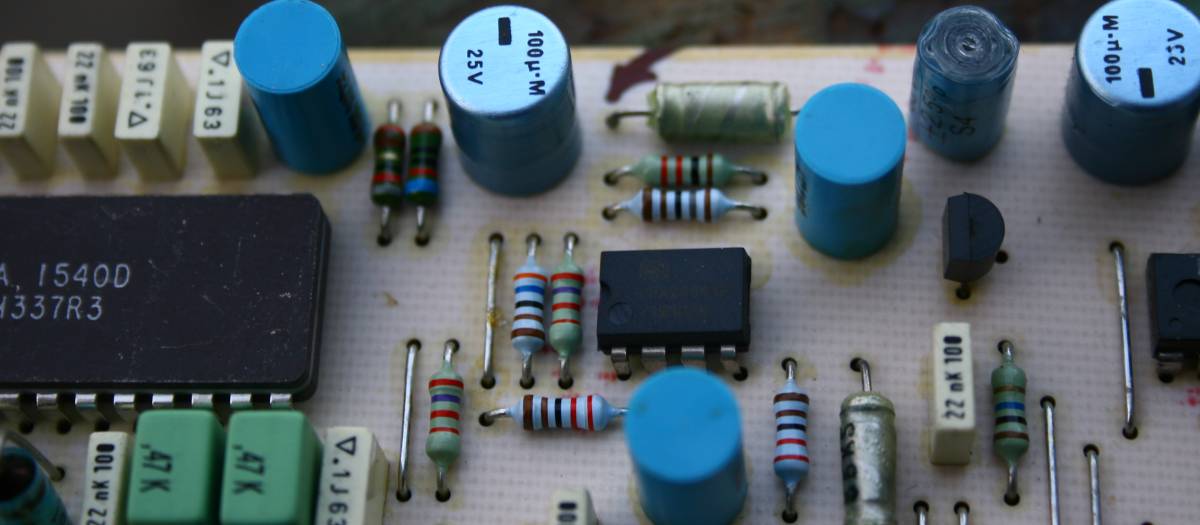
This is the DAC
and his first opamp. Signal stealing point is marked with a black arrow
at the top. One channel only.

This is the
other DAC and his first opamp. Signal stealing point is marked
with a black arrow at the bottom.
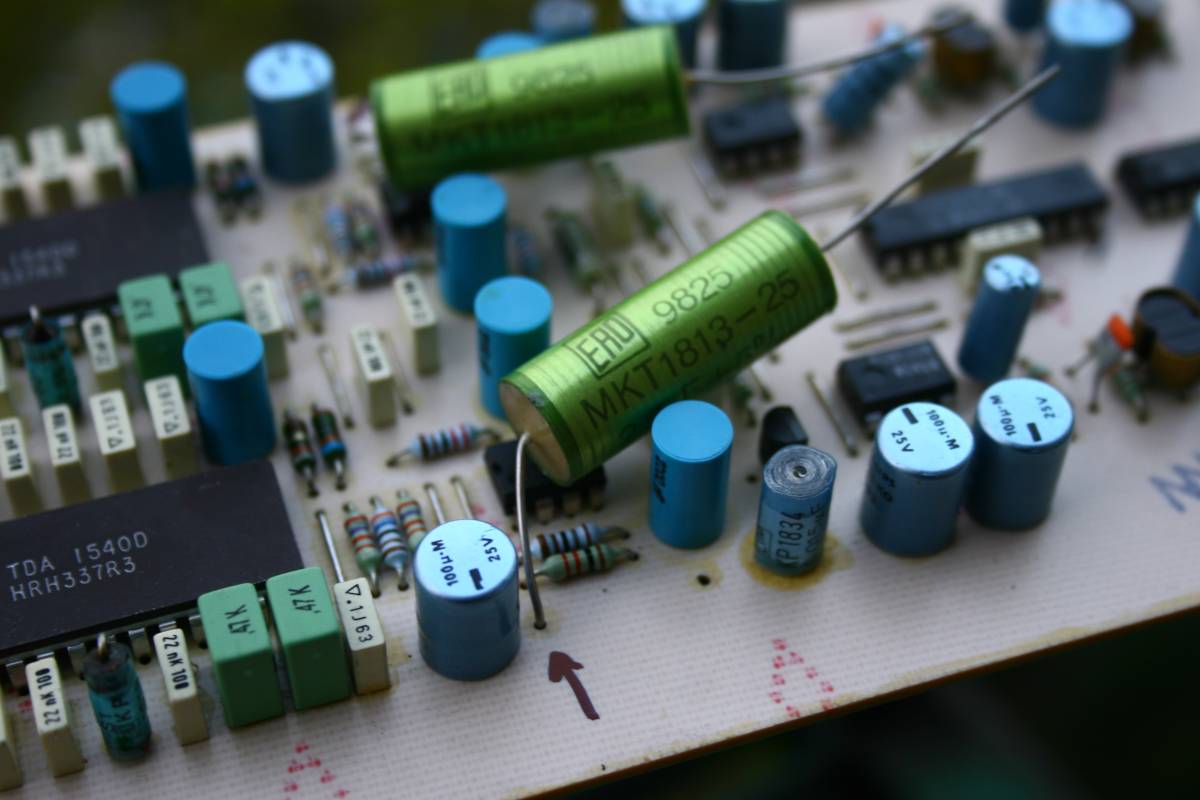
The signal
stealing caps installed.
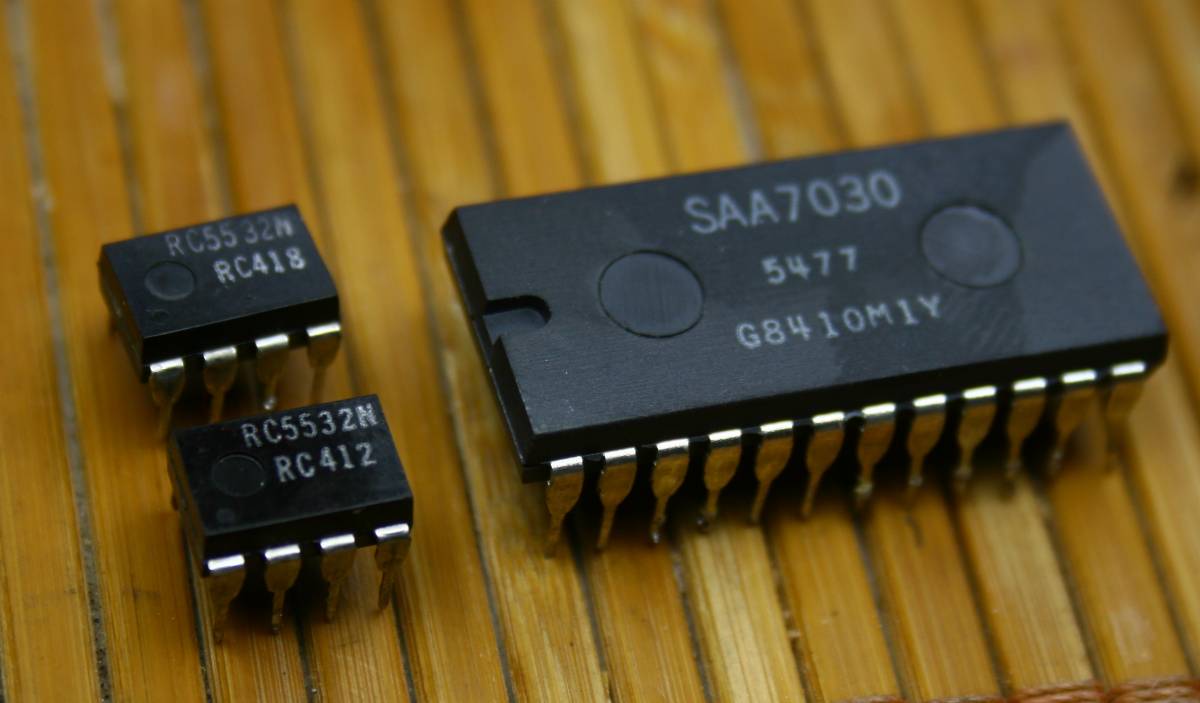
Three chips are
removed - two old opamps and the oversampling chip.
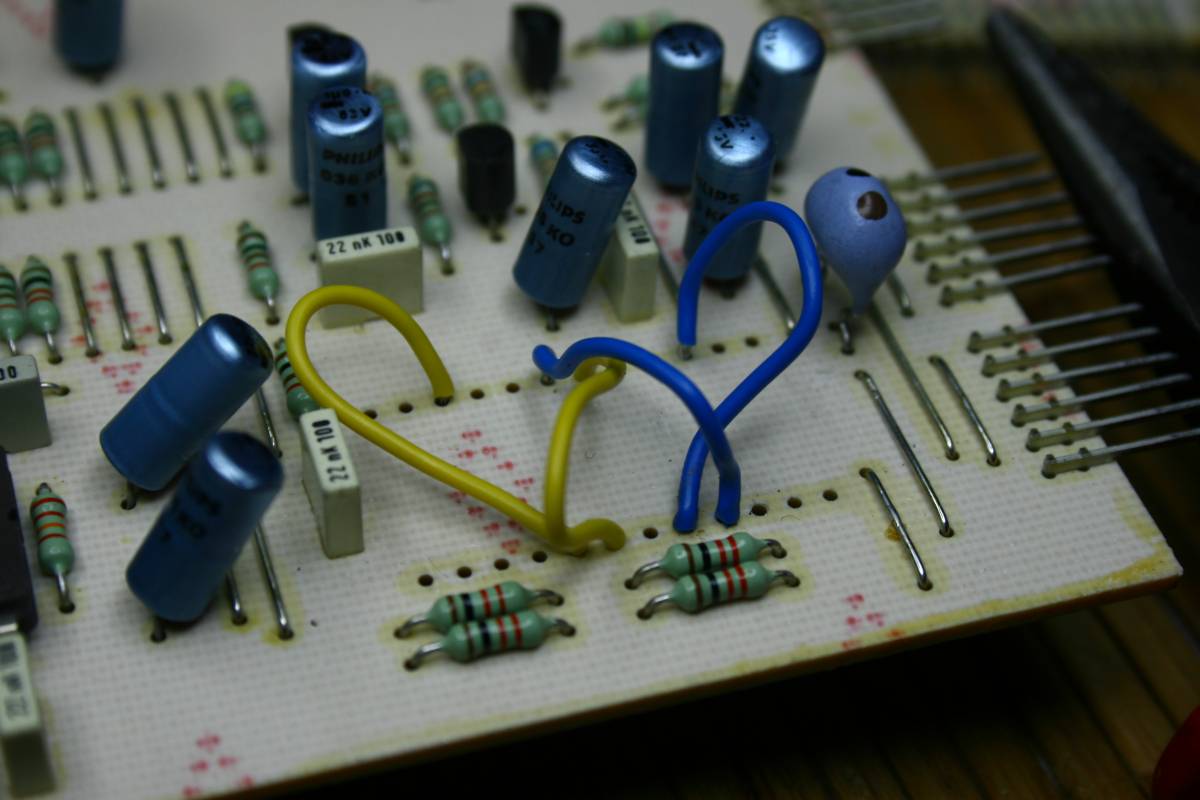
The non
oversampling NOS bridge wires installed in the empty holes of SAA7030
chip.
For pin numbers
see the NOS article.
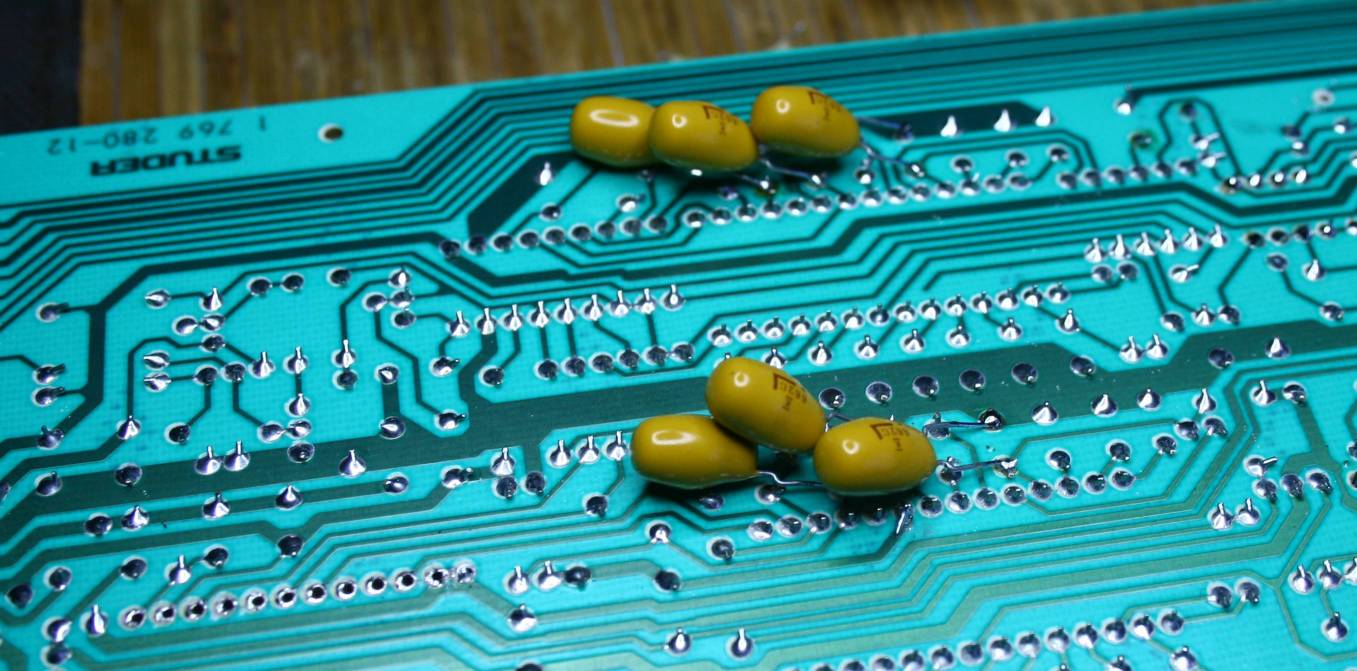
These are three
power supply bypass caps - 100 uF tantalums: for plus 5V, minus 5V and
minus 17V. Three caps PER CHANNEL.
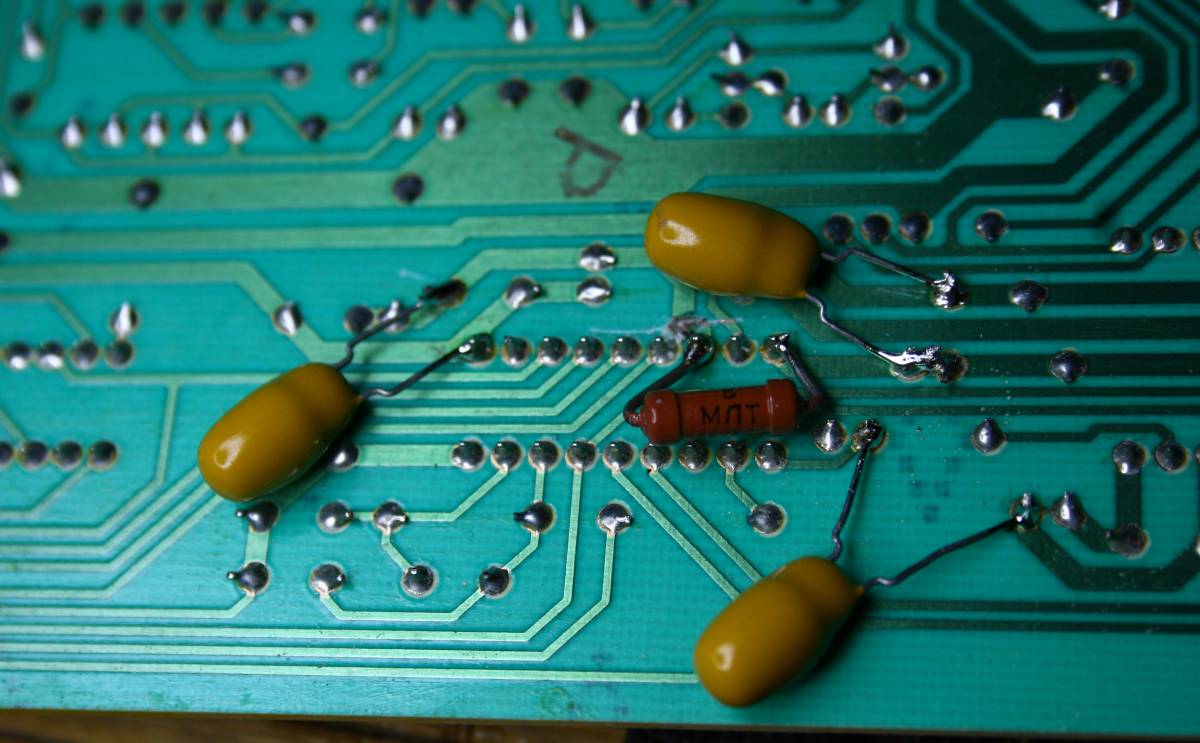
This is the
SAA7000 digital demodulator chip with three power bypass tantalums and
a 1K resistor that pulls the pin 16 to plus5V from Pin 18th to set the
14 bit mode of operation.
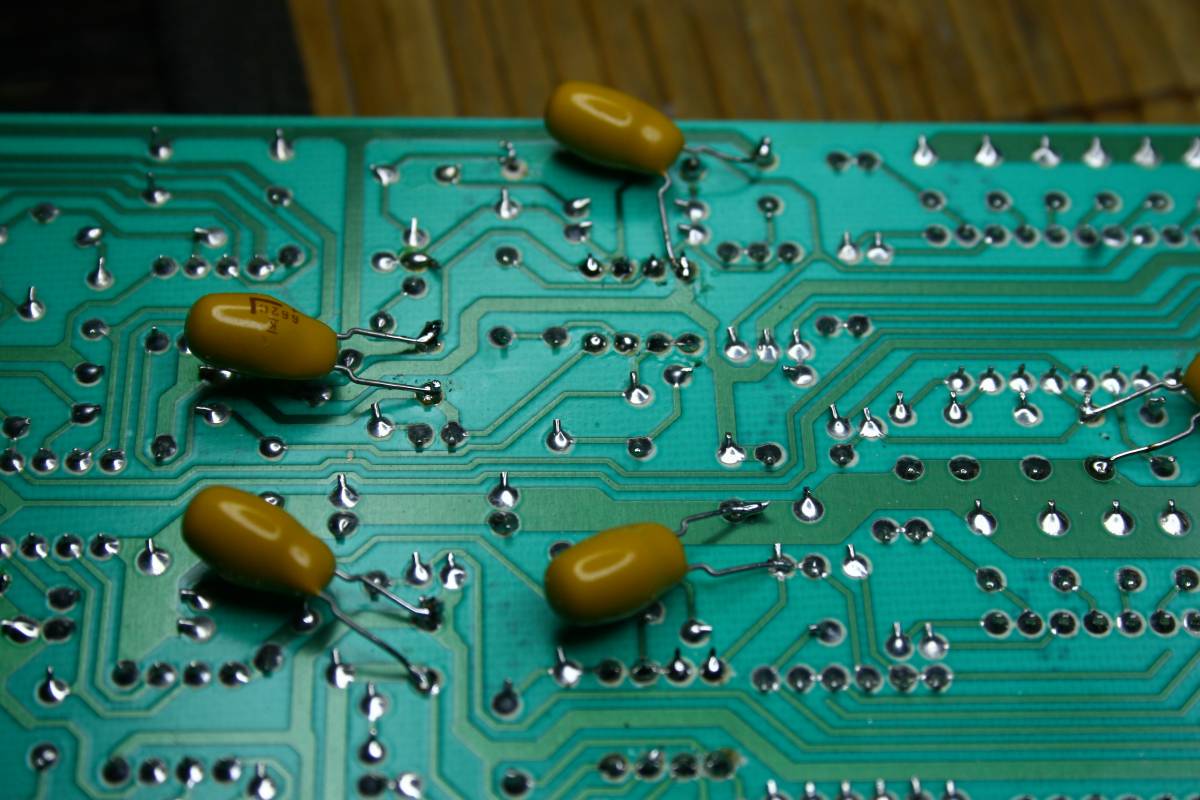
Some other
bypass tantalums - plus and minus supply of the first opamp, two caps
per channel.
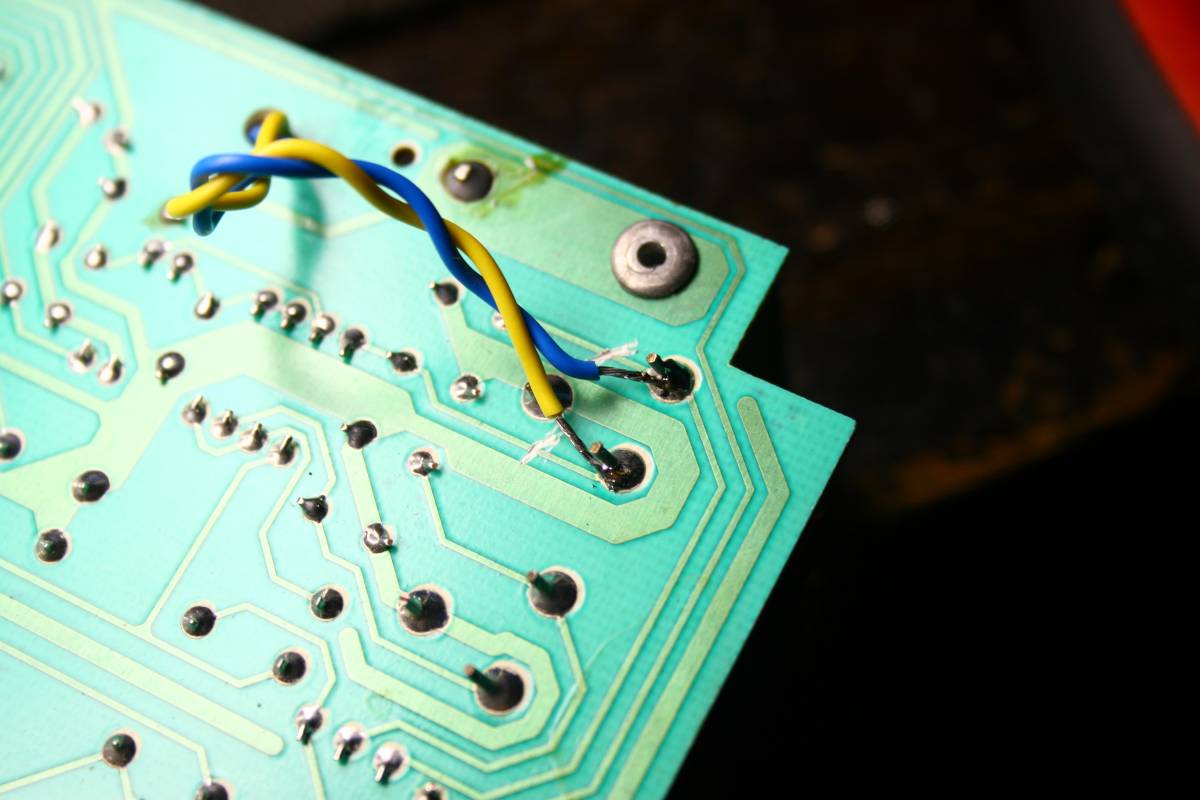
This is the
snipit bridge from first opamp to the RCA outputs. Note the two traces
cut to float the RCA's.
I drilled the
hole to pull the wires through to the other side of the PCB and
connected the wires to the Roedestein capacitors.
SOUND OF NOS REVOX B225
After all mods I
loved the sound. It is lively, solid, with meat, musical, open,
effortless, and with nice presentation of details. Bass is very good
and trebles are okay.
Even without
LAMPIZATOR - this is first class player. Very similar sound to
TDA1541A. I could not tell them apart blindly.
Now lets
do the right thing - Lets lampize the Revox properly with 6N2P tubes
!!!!
..........................to
be continued .....................\\\
See other revox
articles:
Revox
B226S
Revox
B226
Revox
B126
 (temporary image from internet)
(temporary image from internet)
 B&O Beogram
CD5500 and Loewe CD9000
B&O Beogram
CD5500 and Loewe CD9000














